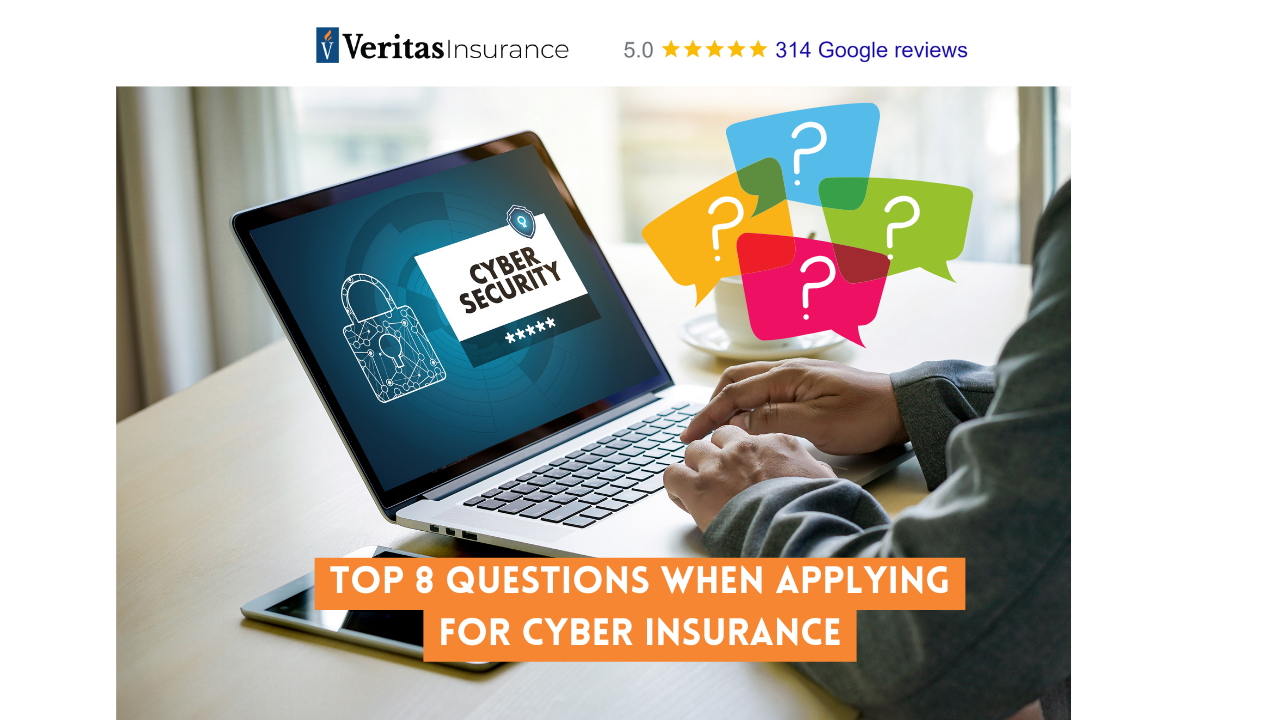Affordable Cyber Insurance Options for Small Businesses
Is your small business prepared for a cyberattack? Do you have a plan in place to mitigate the risks and recover from the fallout of potential cyber...

The world-famous games company Take-Two Interactive (makers of Grand Theft Auto and Red Dead Redemption franchises) fell victim to a ransomware attack in June 2023. Hackers infiltrated Take-Two's systems and reportedly stole source code and game development information. While the exact amount is not known, Take-Two acknowledged that the attack was "material" and would likely result in "increased costs." Aside from the potential financial losses, the attack could have a ripple effect on future game development timelines and potentially expose sensitive game data.
This is just one example, but it illustrates the significant costs that companies can incur beyond ransom demands.
Today we're going to break down exactly how much cyber liability insurance costs, why these prices are changing, and how you can lower your bill using the best way. Consider this your ultimate guide to staying safe (and saving money) in the digital world.
Cyber liability insurance, also known as cyber insurance, serves as a financial safety net for companies in the ever-present threat landscape. It specifically addresses the legal and financial implications of a data breach in which a hacker or cybercriminal gains unauthorized access to a company's electronic network and steals or discloses sensitive customer data. This sensitive information can include a wide range of personal data, such as social security numbers, credit card details, medical data, or even passwords.
A cyber liability insurance policy typically encompasses several key components, which are essential to comprehensively address the financial impact of cyber incidents.
This is an important component of cyber liability insurance that directly protects the insured business from losses resulting from cyber risks or data breaches. Unlike third-party cover, which protects against claims from external parties, first-party cover focuses on reimbursing the insured's own expenses to cover legal costs and losses incurred as a result of a cyber incident.
This covers claims from customers, partners, affected parties, or even suppliers who have been harmed by a data breach in your system. This may include costs associated with identity theft, fraud, or unauthorized access to their data.
This answers for expenses such as: legal fees, representation, advice and potential litigation arising from cyber events.
This coverage gives protection against expenses related to cyber extortion, such as ransomware attacks which include cover for ransom payments to cyber criminals, legal defense costs associated with negotiations with extortionists, and costs of cyber response services to mitigate the impact of the attack.
This is for financial losses arising from cyber fraud, social engineering fraud, or other forms of cybercrime. This can include cover for fraudulent electronic funds transfers, stolen funds from business accounts, or losses resulting from identity theft.
This coverage deals with the aftermath of a cyber incident or data breach for public relations. This can include access to crisis management consultants, public relations firms, and communications services to mitigate reputational damage and restore customer confidence.
While there is no single industry standard for calculating cyber insurance premiums, insurers typically evaluate factors for insurance policies such as company size, industry, data sensitivity, existing security measures, claims history, and overall cybersecurity posture. Proactively improving your security with antivirus software, firewalls, employee training, and robust incident response plans demonstrates strong risk management. This can have a positive impact on your premiums and reduce the likelihood of a costly cyber incident.
The cyber liability policy limits and deductibles you choose for your cyber insurance policy can significantly impact both your insurance costs and insurance claims. Policy limits refer to the maximum amount an insurance company is willing to pay for a covered cyber incident, while deductibles refer to the amount the cyber insurance policyholder is responsible for paying out of pocket before the insurance coverage kicks in. Businesses that face higher risks may choose to pay more for higher policy limits and lower deductibles, as they may have a greater need for cyber liability coverage.
Higher limits, higher costs: The higher the coverage limit or the sum insured under an insurance policy, the more you have to pay upfront.
Lower deductibles, higher costs: The less you have to pay out-of-pocket (deductible) before the insurance kicks in, the more expensive your average premium amount will be.
Finding the sweet spot: The key is to choose limits and deductibles that suit your company's risk profile and budget. Also, knowing how these factors work will help you make informed decisions about your cyber insurance and protect your business without breaking the bank.
The average cost of cyber liability insurance varies considerably and depends on factors such as the size of your business, the industry, the risk profile, the limits of cover, and the underwriting criteria of the insurer.
For general guidance, small to medium-sized businesses (SMBs) have basic cyber insurance with lower coverage limits that can start at around $1,000 to $5,000 annually. Businesses in high-risk industries (healthcare, finance) or those with complex needs will likely pay more, possibly up to tens of thousands per year.
It was in 2020 that the world-renowned Marriott International hotel chain reported a data breach affecting up to 500 million guests, in which hackers accessed personally identifiable information and other sensitive customer information.
This incident highlighted the vulnerabilities in the hospitality industry and led to increased costs for Marriott's cyber security insurance.
Following this incident, Marriott took steps to improve its cybersecurity risk management plan, focusing on secure data storage and encryption to reduce the likelihood of future breaches, lower cyber insurance costs and save money.
Many insurance companies offer discounts if you pay your entire cyber insurance premium upfront. These discounts are often between 5-10%, resulting in significant savings in the long run. If your insurance is paid in full for the year, you can be sure that you won't accidentally miss a payment and risk a lapse in coverage.
Imagine your cyber insurance costs $1200 per year. With a 7% discount for the annual payment, you'd save $84 – that's extra money for something much more fun than an insurance bill!
To ensure the most effective protection against cyber threats, look for policies that are either standalone or part of a package that includes highly specialized coverages tailored to your company's unique needs.
Cyber insurance goes well with Technology Professional coverage that protects against errors and omissions in your technical services or Directors and Officers Coverage that protects company management in the event of cyber-related lawsuits.
Implementing solid security measures, such as strong password policies for sensitive data, up-to-date software, and regular security audits, significantly reduce your risk profile in the eyes of cyber insurance providers. In some cases, insurers even offer additional discounts or incentives for policyholders with proven strong security measures.
Here are some key factors influencing cyber insurance costs:
Industry sector: Certain industries are more susceptible to cyber-attacks due to the type of data they handle or their importance in the digital economy. For example, the healthcare, financial, and retail sectors often face higher cyber risks and consequently higher insurance premiums.
Size of the company: The size of the business, turnover, and number of employees can affect the cost of cyber insurance. If you have a large company, you will have more extensive networks and process larger amounts of data, which leads to higher premiums.
Type and volume of data: The sensitivity and volume of data stored and processed by your business are factors too. If you handle personal data, financial data, or intellectual property, you may have to pay higher premiums due to the potential impact of a data security breach.
Cybersecurity measures: Insurers evaluate a company's cybersecurity measures, including its security protocols, risk management practices, and investments in cybersecurity technologies. Those with robust cybersecurity measures may qualify for lower premiums or discounts.
Compliance requirements: Organizations subject to industry regulations such as GDPR, HIPAA, or PCI-DSS may need to have certain cybersecurity measures in place and be able to respond to incidents to remain compliant. Compliance with these regulations can have an impact on insurance premiums.
Coverage amounts and deductibles: The amount of coverage and deductible you choose will impact premium costs. Higher sums insured and lower deductibles usually result in higher premiums.
Pro tip: If you own a business that handles sensitive customer data, don't skimp on cyber liability coverage. Veritas is a reliable insurance provider with expertise in cyber insurance coverage. Think of it as an investment in protecting your business and your customers.
Investing in cyber liability insurance is worthwhile for most companies given the ever-present threat and rising costs of cyber attacks.
Cyber liability insurance coverage serves as a financial safety net if your cyber security measures fail. It demonstrates responsible risk management and may even be required for regulatory compliance in some industries.
While factors such as the size of your business, the data you process, and your existing cyber security will influence your cyber insurance cost, the reality is that most businesses are targets. The potentially devastating consequences of a cyber attack often far outweigh the cost of insurance, making it a wise investment for long-term protection.
Understanding the cost of cyber liability insurance is critical for businesses to make informed decisions about their cybersecurity posture. Especially for small business owners, investing in cyber insurance is more than just a financial item - it's a proactive step towards business resilience.
Cybersecurity insurance coverage gives you peace of mind that you're financially protected from the potentially devastating costs of cyber attacks. Think of it as a cornerstone of your cyber security strategy, ensuring the long-term financial health and operational stability of your business.
Andrew began his career in the insurance industry in 1997, which ended with the successful launch of his independent agency in 2009. His commitment to professional development is reflected in his titles as a Certified Builders Insurance Agent (CBIA), Certified Insurance Counselor (CIC), Certified Risk Manager (CRM) and Accredited Adviser in Insurance (AAI). Andrew emphasizes building strong client relationships and is constantly expanding his industry knowledge. His website showcases his expertise through informative articles, case studies, and client testimonials, highlighting his commitment to customized insurance solutions and exceptional customer service.

Is your small business prepared for a cyberattack? Do you have a plan in place to mitigate the risks and recover from the fallout of potential cyber...

Businesses of all sizes need solid protection for their critical digital assets. Considering cyber liability insurance for your business is a crucial...

1 min read